class: top, left, inverse, title-slide # Education & Globalization ## Session 19 ### Dr. Zhou Yisu 周憶粟 ### 2018/10/25 --- # Shadows of education ## Aims To examine the negative global flows of education To consider the impact of these flows on individuals To understand some theoretical explanation of the negative flow --- .pull-left[  ] .pull-right[ 1. Singapore movie: I Not Stupid 2. Youtube documentary: [Korea's mounting academic pressure](https://youtu.be/TXswlCa7dug) ] --- ## Common theme Both engaged in .violet[competitive schooling] - .green[Streaming & tracking] in Singapore - After school tutoring (.green[shadow education]) in Korea -- Common consequence: Stressed-out students & family - Psychologically - Socially --- ## School system: Macao 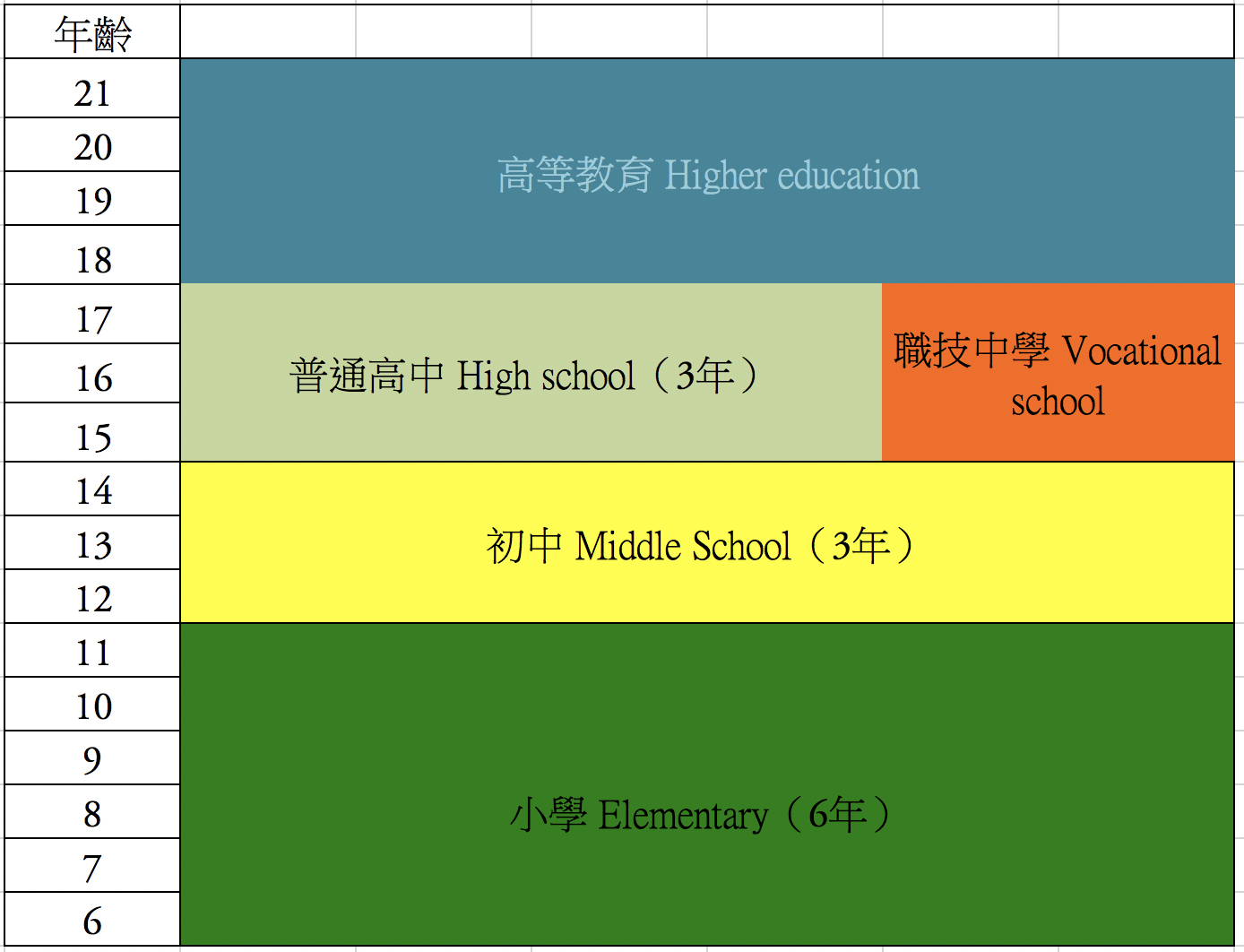 --- ## School system: Singapore 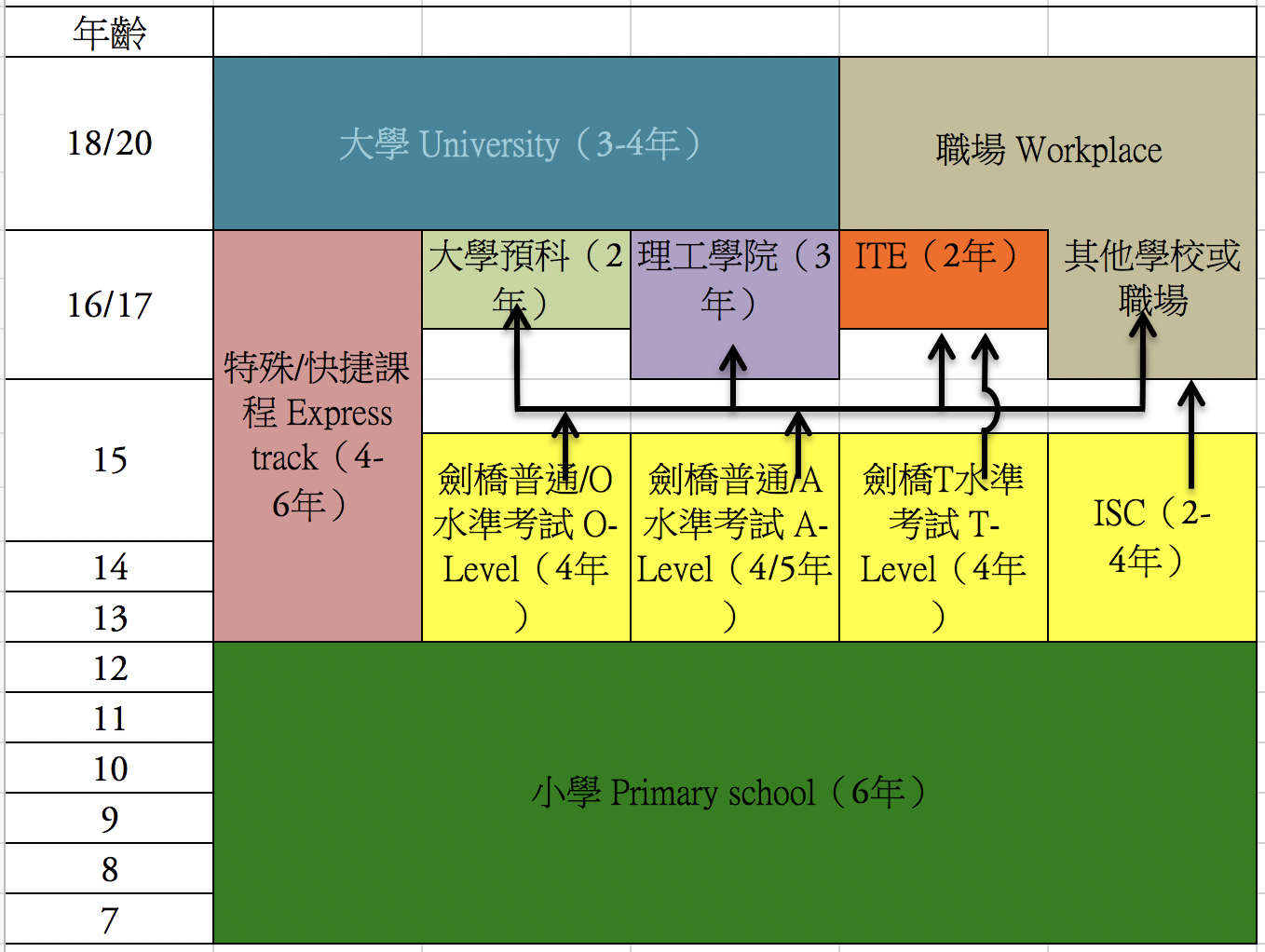 .footnote[Note: Singapore has recently reformed its school system: https://www.moe.gov.sg/education/education-system] --- ## School system: South Korea 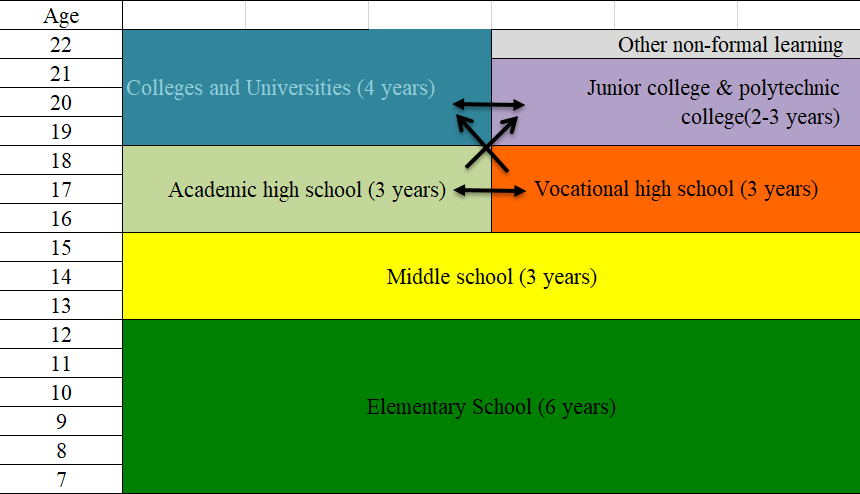 --- ## Nature of competitive schooling  --- ## The "Shadow" metaphor Shadow education is essentially more education. But there are several key characteristics: .orange[Supplementation] 補充: more education on top of common school experience .orange[Privateness] 私有: tutoring provided by private entrepreneurs and individuals for profit-making purposes. .orange[Academic] 學術性質: language subjects, mathematics, and other examinable subjects. --- ## Shadow is almost everywhere In .violet[Hong Kong], a 2011/12 survey found that 53.8% of G9 students and 71.8% of G12 students were receiving private supplementary tutoring <sup>.red[1]</sup>. -- In .violet[India], a 2012 survey indicated that 73% of children aged 6-14 were receiving tutoring. -- In .violet[Kazakhstan], a 2005/06 survey of university students found 59.9% had receive tutoring during their last year of secondary school. -- In .violet[Vietnam], 2006 survey indicated 32% of primary students, 46% of lower secondary, and 63% of upper secondary students received tutoring. .footnote[[1] Source: https://cerc.edu.hku.hk/wp-content/uploads/Mono-10.pdf] --- ## Shadow is almost everywhere More detailed data from .violet[Singapore]: - 60% of high school, and 80% of primary school age students receive private tuition. - 40% of pre-schoolers receive private tuition. - Pre-schoolers, on average, attend two hours private tuition per week, while primary school aged children are attending, on average, at least three hours per week. - According to Singapore's Household Expenditure Survey, private tuition in Singapore is a SGD 1.1 billion dollar industry almost double the amount households spent in 2005 (SGD 650 million). --- ## The shadow spawns a big business 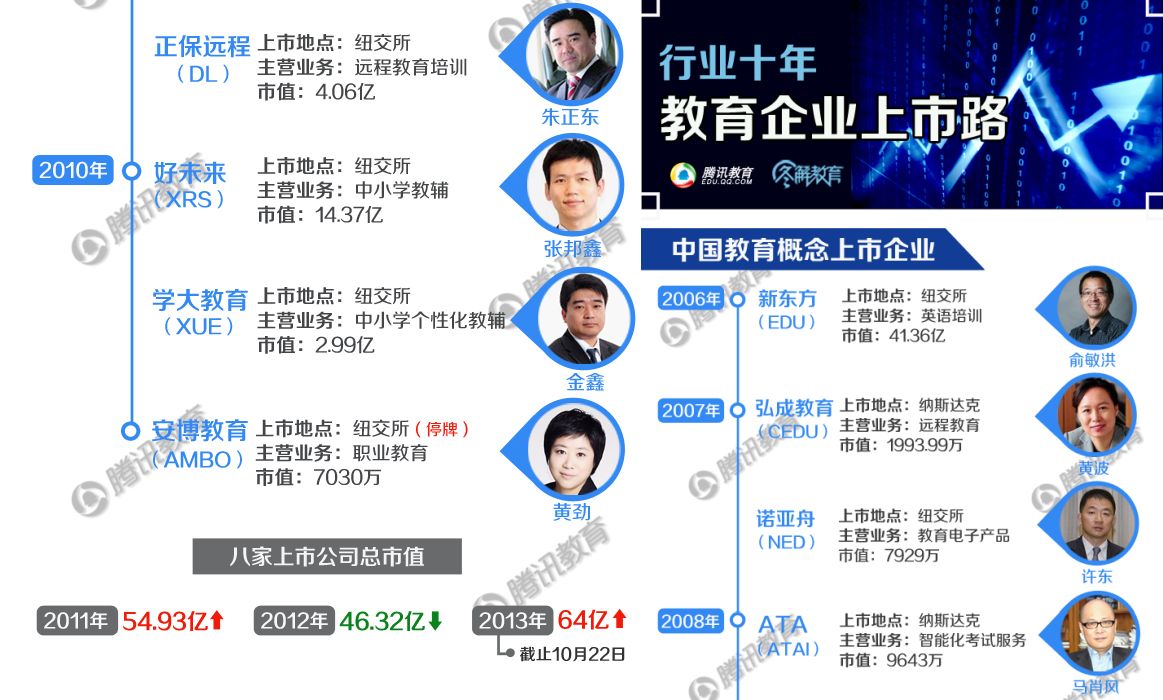 --- ## The shadow spawns a big business Does Mr. Cha's case remind us the .violet[uneveness] of globalized age? 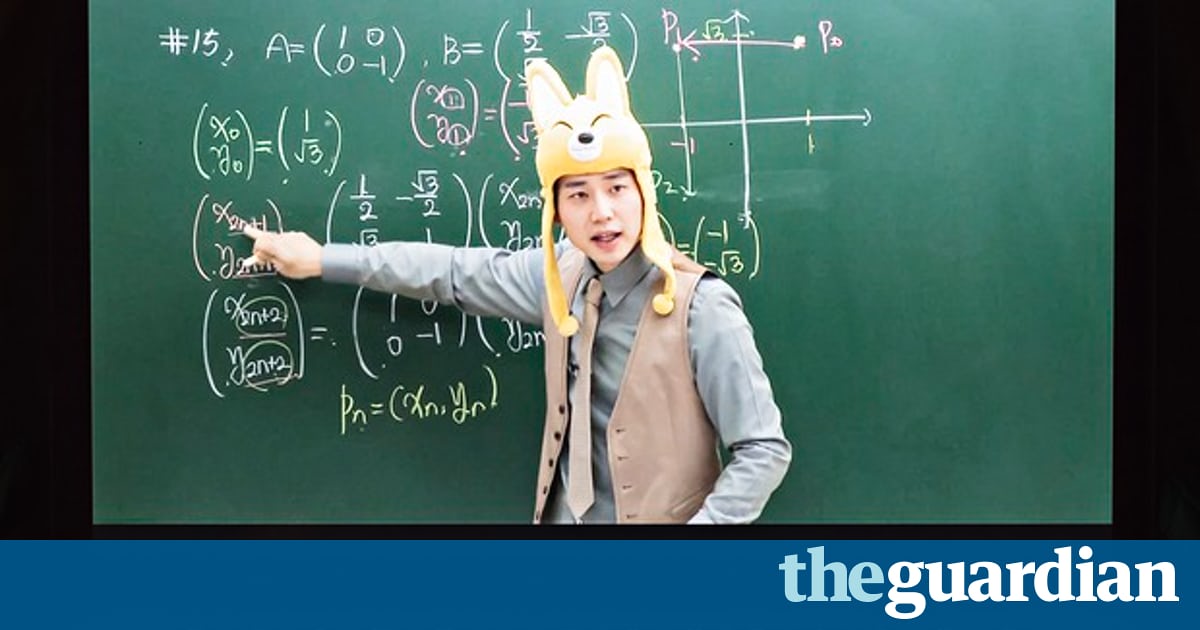 .footnote[Source: _Fast earners: South Korea's millionaire, celebrity schoolteachers_] --- ## Negative consequences: student suicide 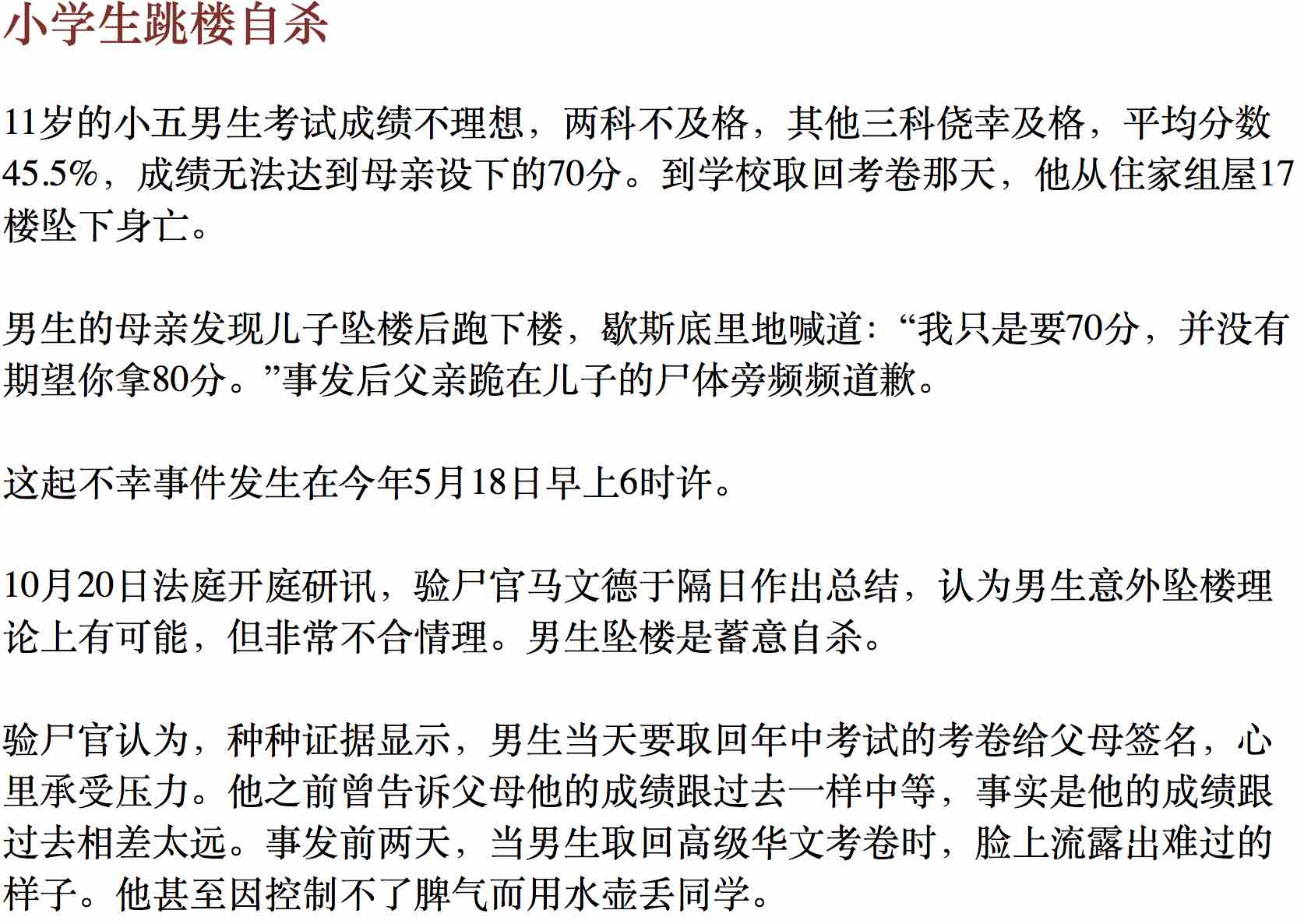 --- ## Negative consequences: Mental illness When children are being asked to achieve perfection in every level, their minds some times could not adapt very well <sup>.red[2]</sup> -- - When parents are highly intrusive 高度介入 and controlling, children are more likely to be .violet[self-critical] 自我批評, .violet[anxious] 焦慮, and .violet[depression] 憂鬱. - Intrusiveness also indicates to children that they are not good enough and that parents have to intervene in various domains of their lives. - As a consequence, these children might become .violet[overly concerned] about committing even the slightest errors. .footnote[[2] Hong et al., 2016, _Developmental Trajectories of Maladaptive Perfectionism in Middle Childhood._ http://onlinelibrary.wiley.com/doi/10.1111/jopy.12249/abstract] --- ## Student-teacher relationship is worse in East Asia 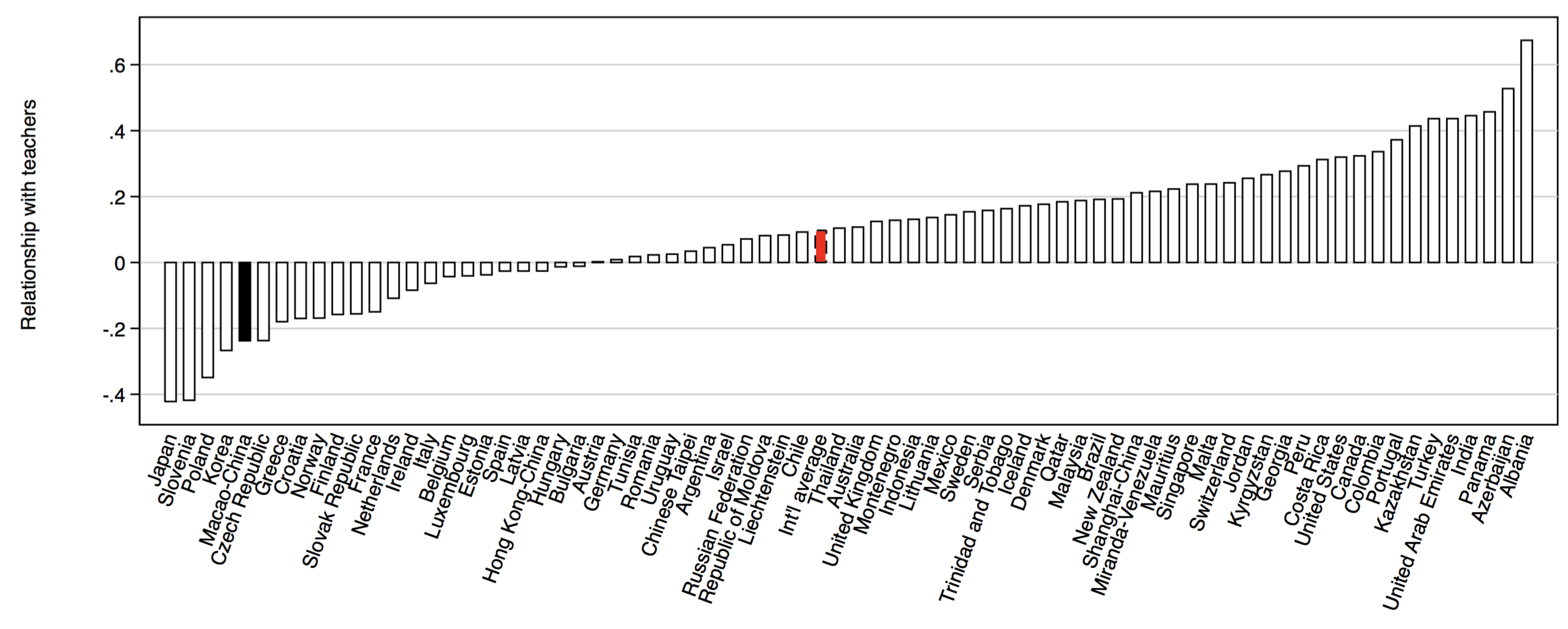 .footnote[Source: PISA 2009] --- ## Broad implications Impact on citizenship: societies divided along socioeconomic line (those who can and cannot afford more education at private expense) -- Education becomes a .red[commodity]: - A goods for sale - Students/parents are consumers and schools are service providers - Differentiating learning experiences -- Create a "losing culture": Only tiny fraction of successful winners but a large army of failed ones. -- Skew motivation for learning --- class: inverse, middle, center # Why people want _more_ education? --- ## If it is so bad, why people still want it? Scholar Clark Sorensen pointed out: <sup>.red[3]</sup> - Unique parent-child relationship in Asia: parents expected to be cared for by their children in old age and .violet[filial piety] 孝道 by giving them a good funeral, worship them after death, is core of Korean ethics. -- - Reciprocal dependence 相互依賴: parents invest in children and expect payback in old age - Family's social status depends on children's academic/economic success .footnote[[3] Sorensen, C. W. (1994, February). Success and education in South Korea. _Comparative Education Review, 38_(1), 10-35. Retrieved from http://www.jstor.org/stable/1189287] --- ## The cultural explanation 文化解釋 This leads to the very unique Asian family culture: - Parents are more likely to .violet[interfere] 干預 with children's learning and social choices rather than respect children's own will. -- - Parents have the time, and inclination, and the power to .violet[demand] that their children succeed in school. -- - Inside schools, teachers request .violet[respect] 尊敬 and .violet[compliance] 順從 from students while convincing them that they care about them as human beings and have their best interests at heart. -- - .orange[It is the effort, not ability that matters to the parents and family] --- class: middle, center ## However, culture alone couldn't explain the zeal people have on education ## It requires a powerful modern ally: .red[Social mobility for the individual] --- background-image: url(https://i.kym-cdn.com/entries/icons/original/000/010/576/got.jpg) background-size: contain --- ### Why is Jon Snow the King of the North? Not Lord Baelish (aka Little Fingre)?  --- ## In the Game of Thrones world (and other ancient worlds), .green[last name] matters a lot  --- ## Social mobility in feudal societies 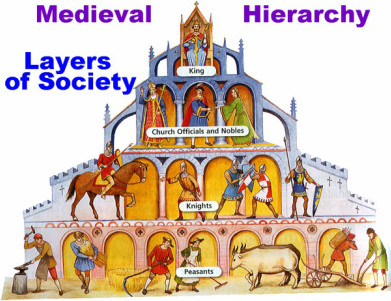 --- ## Social mobility in modern societies  --- ## The sociological explanation 社會學解釋 Sociologist Ralph Tuner proposed two types of social mobility 社會流動: -- - .orange[Contest mobility] 競爭流動模式 is like a sporting event in which many compete for a few recognized prizes. Applied to mobility, the contest norms means that victory by a person of moderate intelligence accomplished through the use of .violet[common sense, enterprise, daring, and successful risk-taking] is more appreciated than victory by .violet[the most intelligent] or .violet[the best educated]. -- - .orange[Sponsored mobility] 庇護流動模式 ejects the pattern of the contest and favors a .violet[controlled] selection process. -- + In this process the elite or their agents, deem to be the best qualified to judge merit, choose individuals for elite status who have .violet[the appropriate qualities]. + Individual do not win or seize elite status; mobility is rather .violet[a process of sponsored induction to the elite]. --- ## Rising idea of .green[meritocracy] Sponsored mobility model is closely linked with .green[meritocracy] 賢能主義/唯才主義, an idea that power/opportunity should be allocated based on ability and talent: - National elites design tests to select future talents - Selective tests are considered most fair for all -- Meritocracy is deeply rooted in Confucianism 儒家. Confucius himself cared deeply about how to design a system to pick the best suited to serve the country <sup>.red[4]</sup>: - This idea operates at societal level. - It requires every participants to do whatever they can to gain an competitive edge in a society where the State controls most of the resources. .footnote[[4] 李弘祺(2012)。.kt[學以為己: 傳統中國的教育。]香港中文大學出版社。] --- ## When combining with close-knit family culture Your family's glory/destiny is tied to children's, as a result, families tend to .violet[_push_] the children very hard. Goes hand-in-hand: families also tend to invest tremendous amount of resources in their children. At societal level, your social status is largely defined by: 1) the types of education received; 2) the relative status within each institution/department/major. Your merit is judged by: .cyan[talent; GPA; internship; study abroad; awards, etc]. All these things are some versions of .violet[_competition_]. The competition is smallest at lower ranking institutions, but intensifies at the top of each level. --- class: middle, center # The shadow of education is really a consequence when education becomes universal & global. --- # .red[Summary] Modern day competitive schooling is deeply rooted in culture, social relationships, and philosophy about individual & society. The shadow continues to grow: In a "school-ed society" (David Baker, Session 11), we are likely to see the spread of such education fever around the world. Is there a way out? It is possibly outside the education system itself. --- ## Resource: - Turner, R. H. (1960). Sponsored and contest mobility and the school system. _American Sociological Review, 25_(6), pp. 855-867.